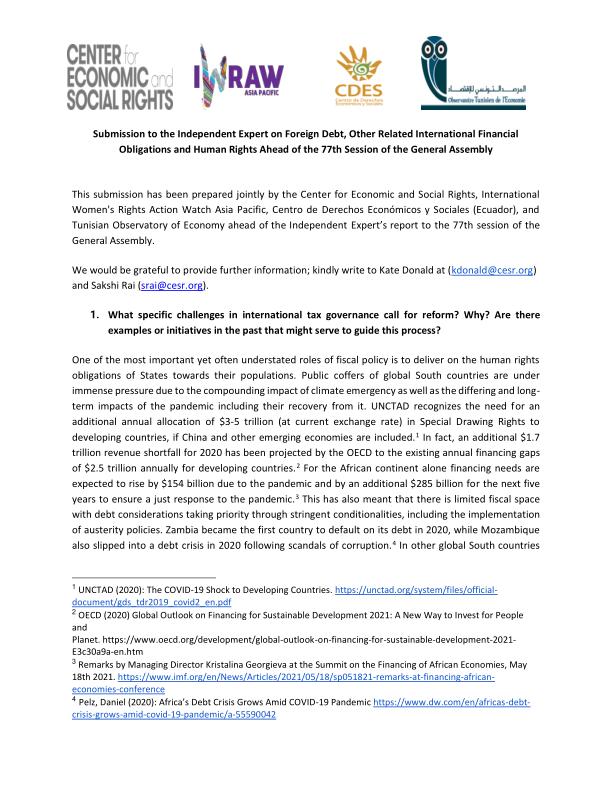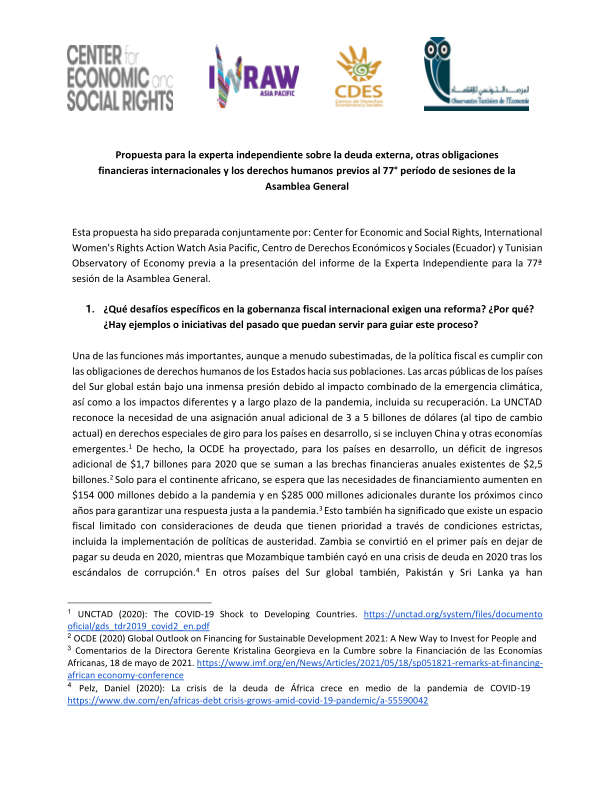The Center for Economic and Social Rights and its partners: IWRAW Asia Pacific, Centro de Derechos Económicos y Sociales and Observatoire Tunisien de L’Economie jointly responded to the call for inputs by the UN Independent Expert on Foreign Debt ahead of her report to the 77th General Assembly.
Public coffers of Global South countries are under immense pressure due to the compounding impact of the climate emergency, severe debt crises, illicit financial flows as well as the differing and long- term impacts of the pandemic. These financing needs are not abstract but pose cumulative dangers towards the immediate and progressive realization of rights of populations in the Global South.
Our submission (available below in English and Spanish) provides evidence on how financial transparency reforms like a Global Beneficial Ownership / Asset Register will bridge geopolitical differences in how information is shared with Global South countries, preventing cross-border illicit activities while strengthening the timely recovery of stolen assets. In our view, any international tax reform must enable all countries towards mobilizing maximum available resources for the realization of human rights. Supporting the call for a UN Convention on Tax, the submission underscores that human rights obligations enshrined in international treaties should be meaningfully cross-referenced and incorporated. These include obligations such as substantive equality and non-discrimination, non-retrogression, maximum available resources, and international cooperation stressing extraterritorial obligations as well as the principle of common but differentiated responsibilities.
The global tax agreement brokered by the OECD and G20 as a solution falls short of aligning with human rights principles of representation, non-discrimination, non-retrogression, substantive equality, participation as well as redistribution and the obligation to cooperate internationally. This submission is an important resource especially in light of the exchange between the Human Rights Special Procedures and the OECD as this development points towards such institutions being held to account for their possible human rights violations.
Please read CESR’s analysis of the Global Tax Agreement here.

